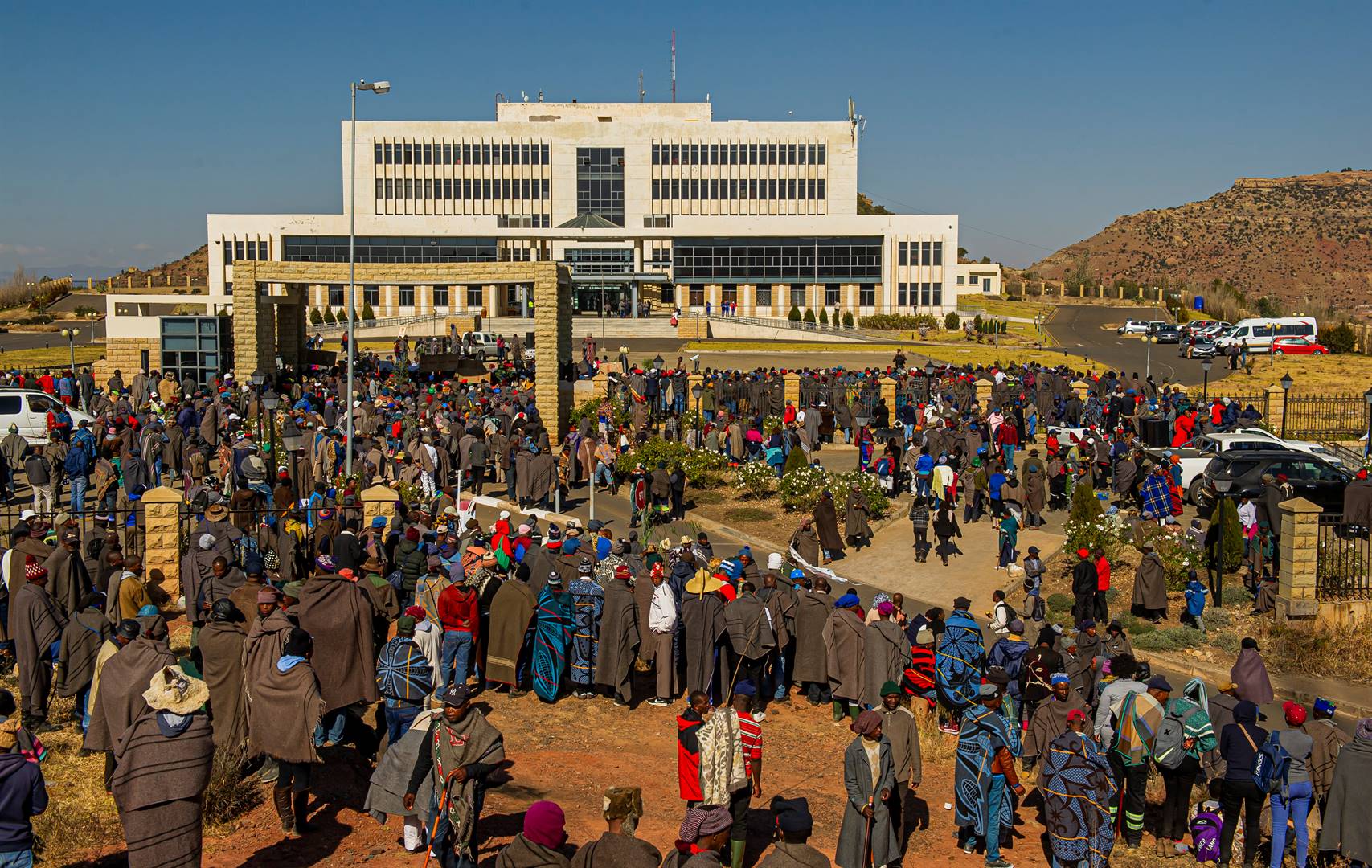Kabelo Masoabi
Lesotho has been recognised as one of 26 countries demonstrating exceptional performance on the 2024 Millennium Challenge Corporation (MCC) scorecard.
The achievement was celebrated during a ceremony in Maseru, where the United States chargé d’affaires, Thomas Hines, presented the scorecard to Deputy Prime Minister Justice Nthomeng Majara, representing Prime Minister Ntsokoane Matekane.
The MCC scorecard evaluates countries based on 20 indicators in areas such as economic freedom, governance, and investment in human capital.
Lesotho improved its performance from passing 15 indicators last year to 17, meeting new benchmarks in Girls’ Primary Education Completion, Natural Resource Protection, Land Rights and Access, and Fiscal Policy.
Thomas Hines, the United States Chargé d’Affaires, commended Lesotho for its commitment to advancing democratic governance and driving economic development, emphasising that such progress is crucial for ensuring a prosperous future for its citizens.
In his remarks, Hines highlighted Lesotho’s improved performance, advancing from passing 15 indicators last year to 17 out of 20 this year. The newly passed indicators include Girls’ Primary Education Completion, Natural Resource Protection, Land Rights and Access, and Fiscal Policy.
However, he expressed concerns about Government Effectiveness and Freedom of Information, which did not meet the passing criteria, underscoring the need to prioritise press freedom and the rule of law.
He also noted a decline in the Control of Corruption indicator, calling for collaborative efforts to combat corruption, which jeopardizes Lesotho’s overall performance and adversely impacts the economy and social fabric.
Hines further stressed that maximising the compact’s impact requires improving access to quality healthcare, boosting employment and business development, and investing in high-value crop production. He added that addressing corruption and strengthening governance would enhance the effectiveness of these initiatives.
In addition to the scorecard results, Hines acknowledged government achievements such as the passage of Inheritance Reforms, Labour Law, and Occupational Health and Safety Law. These reforms, he noted, amplify the compact’s impact and underscore the enduring partnership between the United States and Lesotho.
He also informed the audience about the establishment of the Millennium Challenge Account (MCA) Lesotho, which will oversee the Compact. He highlighted the critical importance of passing the Water Resources Management Bill, which is essential to unlocking additional funding, regulating the water and irrigation sectors, and ensuring the sustainability of developed infrastructure.
MCA-Lesotho II, authorised by the Lesotho government, is responsible for implementing the Health and Horticulture Compact with the MCC. This $300 million grant from the U.S. government, unlocked on March 31, 2024, aims to reduce poverty sustainably.
“With just four years, four months, and four days remaining to complete the Compact, the urgency is clear. We must sprint, not walk, to the finish line to benefit fully from the Compact. We must work even more closely and effectively to accelerate Lesotho’s economic development. Next year, we hope to celebrate further improvements on the scorecard. The United States remains your steadfast partner, dedicated to helping Lesotho deliver sustainable economic growth,” Hines concluded at the State House.
Deputy Prime Minister Majara expressed pride in receiving the MCC scorecard on behalf of Basotho, highlighting it as a testament to Lesotho’s progress.
Majara acknowledged the need to address key shortcomings, particularly in Trade Policy, Government Effectiveness, and Freedom of Information, the latter having seen a significant decline from 83 percent to 43 percent.
She reaffirmed the government’s commitment to resolving these issues and ensuring greater accountability within the public sector.
She also underscored the importance of the $300 million Health and Horticulture Compact grant, emphasizing its potential to drive Lesotho’s economic vision forward by tackling unemployment and poverty.
Summary
- He expressed concerns about Government Effectiveness and Freedom of Information, which did not meet the passing criteria, underscoring the need to prioritise press freedom and the rule of law.
- He also noted a decline in the Control of Corruption indicator, calling for collaborative efforts to combat corruption, which jeopardizes Lesotho’s overall performance and adversely impacts the economy and social fabric.
- He highlighted the critical importance of passing the Water Resources Management Bill, which is essential to unlocking additional funding, regulating the water and irrigation sectors, and ensuring the sustainability of developed infrastructure.

Your Trusted Source for News and Insights in Lesotho!
At Newsday Media, we are passionate about delivering accurate, timely, and engaging news and multimedia content to our diverse audience. Founded with the vision of revolutionizing the media landscape in Lesotho, we have grown into a leading hybrid media company that blends traditional journalism with innovative digital platforms.










